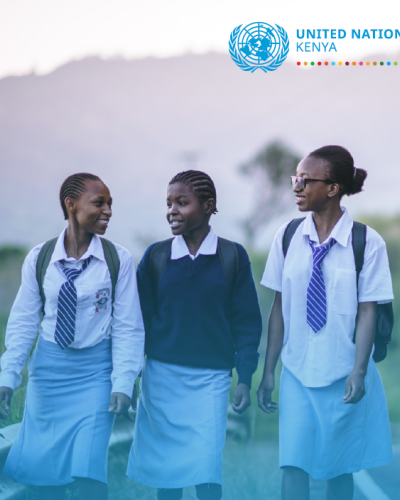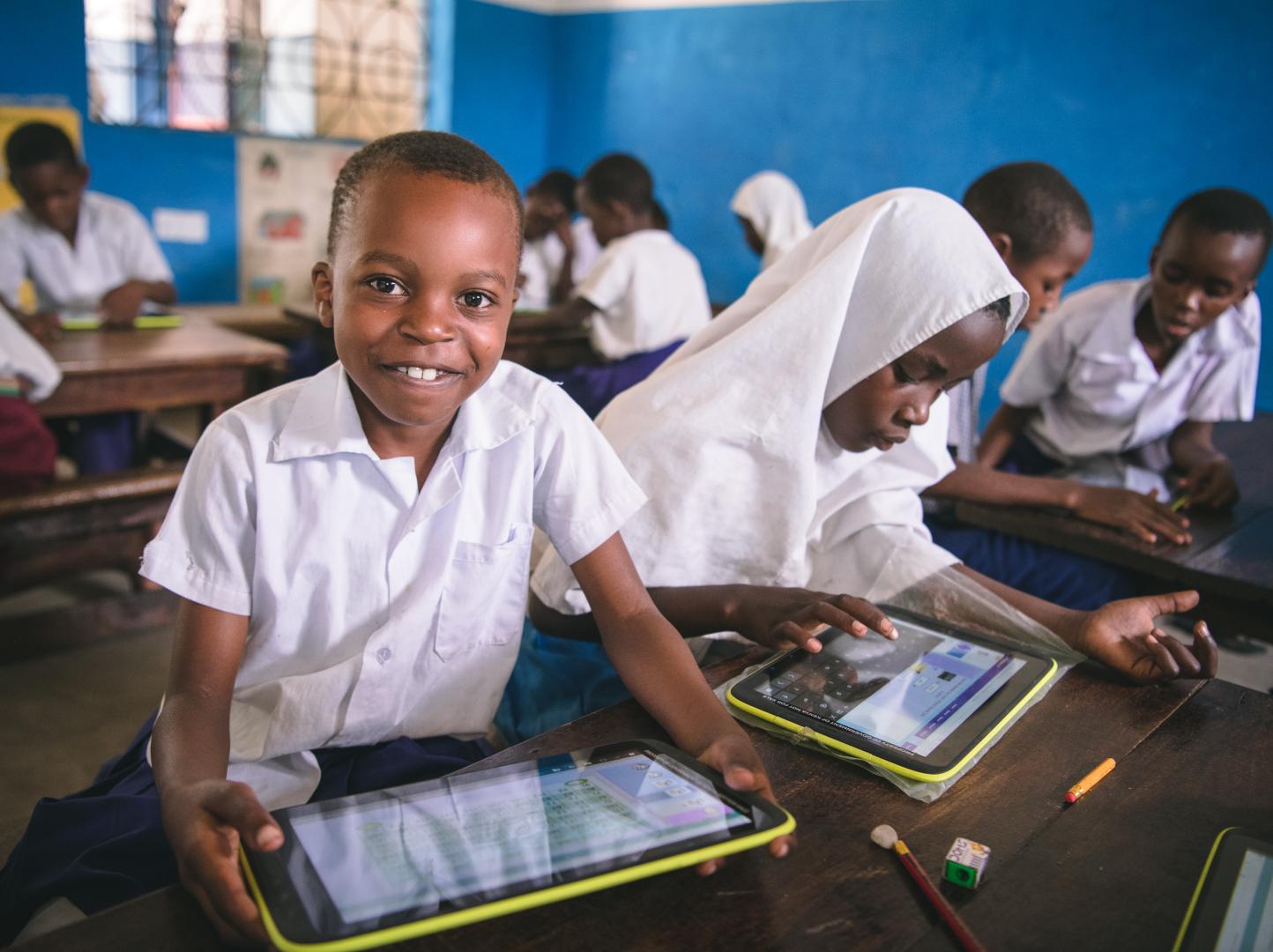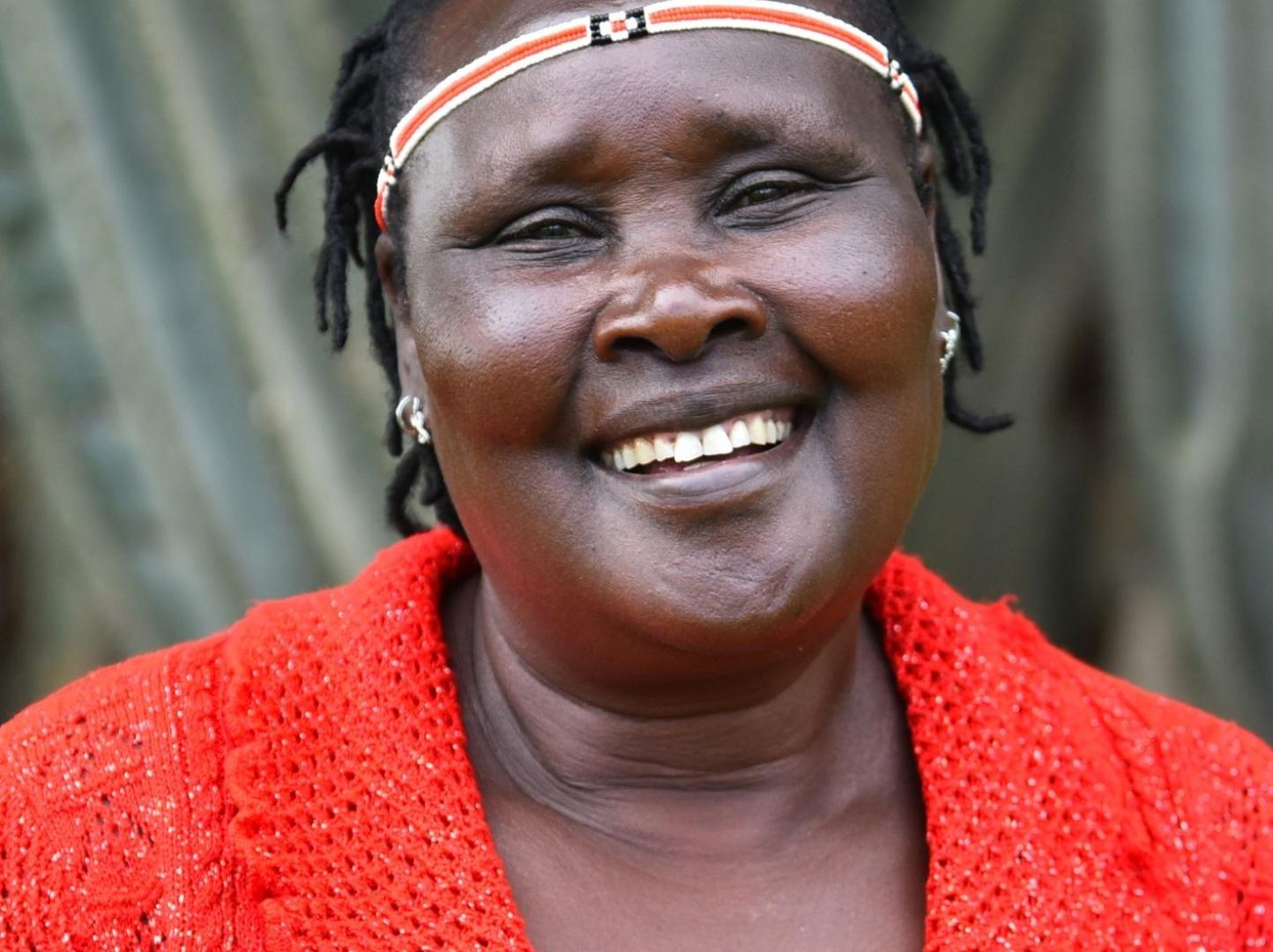UN Kenya 2023 Annual Results Report

Throughout 2023, Kenya’s remarkable sustainable development journey and her global and continental leadership continued to advance, despite powerful headwinds coming from both regional and international instability. As UN Kenya, we are proud that 2023 was also a year that showcased the power of partnership, resilience and innovation. Reflecting on the past year, it is evident that our collaboration with the people and Government of Kenya, under the leadership of President William Ruto, goes from strength to strength.
The highlight of that partnership in 2023 was undoubtedly our support to help Kenya’s hosting of the Africa Climate Summit in Nairobi, a landmark event co-hosted by Kenya with the African Union. Attracting some 30,000 delegates – including 18 African Heads of State or Government and key global leaders – the Summit signalled a reset in global climate discussions. It underscored that if the world is to defeat the Climate Emergency we are in, then it will need to unite global finance with Africa’s solutions: in green energy production, sustainable food production and in carbon capture.
UN Kenya’s support to the convening went beyond participation, providing significant resources, organisation and enriching the technical substance. The Nairobi Declaration, an outcome of the summit, amplified Africa’s voice on the Climate Emergency and underlined the continent’s leadership on and centrality to sustainable solutions.
Just a few short months later, Kenya hosted the 6th edition of the YouthConnekt Africa Summit. Again, based on our shared vision and deep bench of expertise in youth empowerment, UN Kenya was honoured to play a major supporting role to the Government of Kenya around the Summit. Focused on fostering youth leadership and innovation for a borderless African renaissance, the event attracted over 20,000 young participants and reached over 11 million persons across the continent through social media. The involvement of major partners, including Huawei Kenya and 38 other firms in creating opportunities for young Kenyans in ICT and other sectors, underlines the effectiveness of multi-stakeholder partners in nurturing the next generation of African leaders.
Despite the good news, Kenya remains in the crosshairs of the global Climate Emergency, bringing both gravity and volatility to the disaster risk reduction challenge. In a single year, Kenya whiplashed from the most extreme drought in recorded history (after three years, almost six million Kenyans faced extreme hunger) to the devastating effects of flooding caused by El Niño (with more than half a million displaced and more than a hundred lives lost). The tragic irony of swinging from drought to flooding is hard to ignore. These events caused significant distress and damage, testing the resilience of communities and the nation at large. UN Kenya was proud to stand alongside the Kenyan Government, mobilising with our partners’ support over USD 394 million for the 2023 Drought Response Plan, of which USD 279 million for the UN response. In 2023, the humanitarian response by the UN Kenya and its partners reached 2.9 million people. Moreover, by the end of 2023, in response to the El Niño flood emergency, UN Kenya and its partners reached 452,000 people were reached with lifesaving emergency assistance.
In 2023, the UN Kenya together with partners reached over 9,542,000 people with food, cash transfers, commodity vouchers and initiatives aimed at bolstering malnutrition treatment and prevention programmes.
Successive Kenyan governments have laudably placed Universal Health Coverage (UHC) at the centre of their sustainable development strategies. In 2023, technical support by the UN to the government helped enable Kenya to secure a substantial USD 415 million grant from the Global Fund Cycle 7, aimed at combating tuberculosis, HIV, malaria and bolstering health systems, helping to impact the health and well-being of over a million individuals by strengthening primary healthcare. UHC is one of the many areas where it is vital to shift from development funding to development financing to achieve true scale and impact.
In September, UN Kenya was proud to launch what we believe to be the world’s first Development Impact Bond (DIB) in the area of Adolescent Sexual and Reproductive Health (ASRH). The ASRH DIB is a two year “pay for success” programme that seeks to reach over 500,000 girls with sexual and reproductive health services and HIV services. The innovative DIB financing approach considerably multiplies the upfront financial investment through public-private partnerships.
As former Deputy Secretary-General Jan Eliasson was wont to repeat, there is no sustainable development without sustainable peace. Kenya boasts one of the world’s most impressive and performant “national peace infrastructures” (NPI): the array of national and local level institutions charged with strengthening and preserving national peace and cohesion. Flowing from the crucial role the NPI institutions played in delivering an orderly election and peaceful transition in 2022, the Kenyan Government undertook a comprehensive review process. UN Kenya was proud to lend technical and financial support to the work of the Independent Panel of Advisers, leading to a landmark report under the rubric of a “New Kenyan Agenda for Peace”.
Achieving the 17 Sustainable Development Goals (SDGs) by 2030 will only be possible through joined-up development action at scale. Three different and important advances in that direction were registered in Kenya and in 2023. First, technical and financially supported by UN Kenya, His Excellency the Deputy President launched Kenya’s renewed national Development Partners Forum – a structure of strategic dialogue and guidance for development action which I have the honour to co-Vice-chair, along with His Excellency the Ambassador of the Netherlands. Second, translating the global “Funding Compact” into country-level reality for the benefit of Kenya, UN Kenya launched its first SDG Multi-Partner Trust Fund Kenya to channel pooled development funding to joint UN development programming at scale. I would like particularly to thank our pioneering development partners – the governments of Norway, Sweden,Switzerland and the Netherlands, including philanthropists Rockefeller Foundation, Conrad N. Hilton Foundation, Merck & C o., Inc., AstraZeneca and Koninklijke Philips N.V – for believing in this approach and plunging in to support. We look forward to growing the pool still further in 2024.Finally, the UN Member States rightly demand a laser-focus on cost efficiency in delivery.
UN Kenya is proud to have led the UN system globally by designing and launching the first-ever UN “Common Back Office” (CBO). The CBO provides a common operational and administrative platform to the more than 60 UN entities operating in, for and from Kenya. 79 common services are being provided across administration, Human Resources, procurement, logistics and finance. By combining our forces, we will realise economies of scale and significant cost efficiencies that can be ploughed back into development and humanitarian programming for the benefit of the Kenyan people and the realisation of the Sustainable Development Goals in Kenya – and we provide a solid platform from which to deliver joined-up, impactful development action.
Together, across UN Kenya, we are deeply committed to advancing the sustainable development of this great country of Kenya, for a future that is not only prosperous and peaceful but also inclusive, equitable, resilient and sustainable in the face of global challenges. I wish to express my profound appreciation to the UN Kenya family, the Government and people of Kenya and to all our development partners. Your unwavering dedication, collaboration and generous support are pivotal in helping us help Kenya.
Dr. Stephen Jackson,
UN Resident Coordinator in Kenya




















